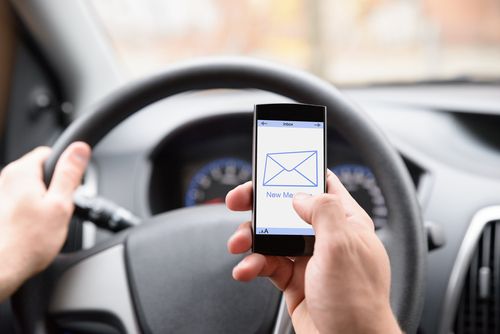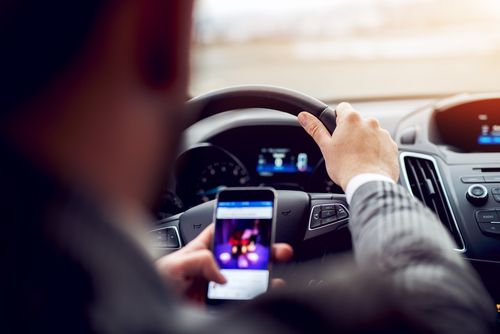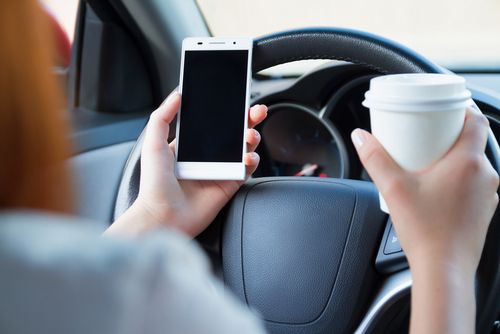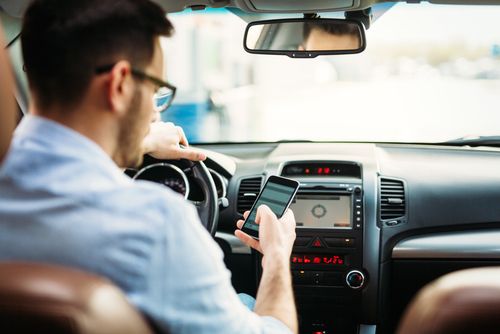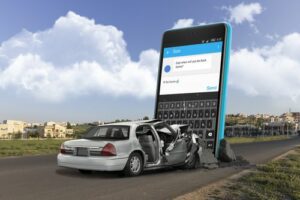
He was only 19 years old. Evan Lieberman, a college freshman, was in the backseat of his friend’s car when it careened over a center line and crashed head-on into an oncoming Jeep on a highway north of New York City. He spent 30 days in the hospital before he succumbed to his injuries.
Police records show the driver, Evan’s friend Michael Fiddle, was using his cell phone as he drove. However, law enforcement couldn’t prove he was texting at the time of the accident. Evan’s distraught father, Ben Lieberman, sued Fiddle and also launched a campaign against texting while driving.
Evan’s dad also reached out to Cellebrite, a company that has developed software that can detect if, and precisely when, a certain device has been used. They call it the Textalyzer. Basically it is the digital equivalent of a breathalyzer.
In March of 2016, the New York Senate’s Transportation committee approved “Evan’s Law,” legislation in honor of Lieberman that would enable authorities to use such technology to enforce distracted driving offenses. Should Evan’s Law pass in New York, it will be the first state to pass this law.
The bill contains language that calls for amending the state’s traffic laws to allow for the field testing of phones and other devices, tests that would only be allowed after an accident involving personal injury or property damage. An officer arriving at the scene of a crash could ask for the phones of any drivers involved and use the Textalyzer to tap into the operating system to check for recent activity. The technology could determine whether a driver had used the phone to text, email or do anything else that is forbidden under New York’s hands-free driving laws. Failure to hand over a phone could lead to the suspension of a driver’s license, similar to the consequences for refusing a Breathalyzer.
Jay Winsten, an associate dean and the director of the Center for Health Communication at Harvard’s School of Public Health, said, “We’re losing the battle against distracted driving.”
The statistics are scary. According to research from Zendrive, a driving analytics company, Americans use their phones nearly every single time they get behind the wheel. The study reveals that during an hour-long trip, drivers spend an average of three-and-a-half minutes using their phones.
This finding is frightening, especially when you consider that a two-second distraction is long enough to increase the likelihood of crashing by over 20 times. In other words, that’s equivalent to 105 opportunities an hour that one can kill themselves and/or others.
Candace Lightner, the founder of Mothers Against Drunk Driving, has helped form a new group this year, Partnership for Distraction-Free Driving. It is pressuring social media companies like Facebook and Twitter to discourage multitasking by drivers, in the same way Lightner pushed beer and liquor companies to discourage drunken driving. “Distracted driving is not being treated as seriously as drunk driving, and it needs to be,” she said. “It’s dangerous, devastating, crippling, and it’s a killer, and still socially acceptable.”
Evan’s Law has triggered a great deal of backlash. “It really invites police to seize phones without justification or warrant,” says Donna Lieberman, the executive director of the New York chapter of the American Civil Liberties Union. Plus, three years ago, the Supreme Court unanimously ruled that police need warrants to search the cellphones of people they arrest.
State Senator Terrence Murphy of New York, a Republican and a sponsor of the bill, said the Textalyzer concept is based on the same “implied consent” legal theory that allows law enforcement to use a Breathalyzer. When drivers obtain a license, they are consenting in advance to a Breathalyzer, or else they will risk the suspension of their license.
“Distracted driving should be taken as seriously as drunk driving,” says Ben Lieberman. “It’s time to recognize that distracted driving is a similar impairment, and should be dealt with in a similar fashion.”
If you or a loved one has been injured or killed in a distracted driving related automobile accident or any type of car accident, contact Rosenberg & Gluck, personal injury attorneys, for a free, confidential legal consultation to learn more about your options.

